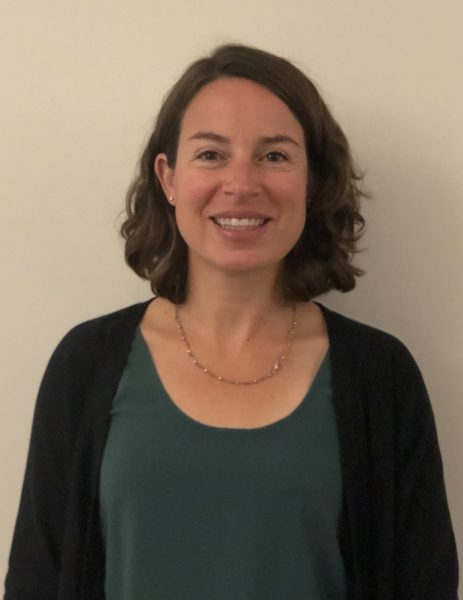The Department of Communication Studies welcomes the new Managing Director of the ACT Human Rights Film Festival, Beth Seymour.
Seymour will be tackling the festivals’s major operations, including registering and organizing volunteers, securing partner sponsorships, inviting filmmakers and other prominent guests, procuring films for screenings, and leading programmatic planning and execution. Seymour will be working with others in the department that have been supporting the ACT Festival since its inception. This includes professors Scott Diffrient and Greg Dickinson and alumni, communications and development coordinator Carol Busch.

“The festival will undoubtedly thrive with Beth on board,” said Busch, the festival’s assistant producer and director of marketing. “She brings a rare combination of institutional knowledge, development expertise, project management efficiency, and first-hand experience with festival operations.”
Seymour has been doing contract fundraising with non-profit organizations for the last 15 years. Though she received a master’s degree in Latin America studies and an undergraduate degree in Spanish, she has always been drawn to non-profit work, starting with her first internship in college.
“I have always approached world problems through mission-driven organizations that try to make the world a better place,” said Seymour. “Fundraising is a great way to create the resources needed for these programs to succeed.”
In addition to her fundraising and non-profit background, Seymour has also served on the boards of two Colorado Springs arts organizations: the Rocky Mountain Women’s Film Institute, the second-longest-running women’s film festival in the world, and the arts festival Imagination Celebration.
This prior experience will help Seymour curate ACT along with Diffrient, the festival’s director of programming. Curation involves previewing hand-picked films appearing in human rights and documentary festivals around the world, examining how they meet ACT’s film criteria standards and determining the final line-up of films and guests.
“We really want to focus on highlighting truly diverse voices, unique geographic locations, and human rights issues that come together to create a time capsule that shows the current state of the world through film,” said Seymour.
“Film is a unique and powerful vehicle for storytelling. There is little that compares to sitting in a theater full of people, watching a powerful film and then feeling the mass-energy from those around you.”